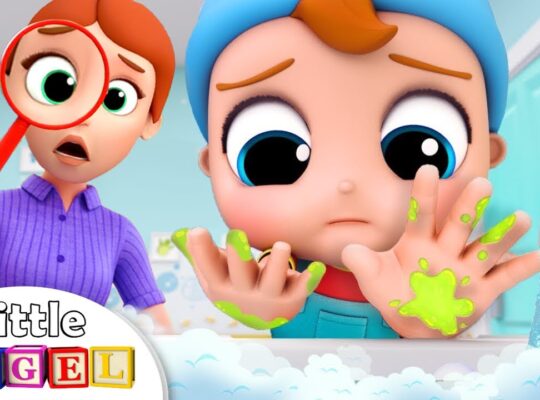In case you hadn’t noticed, life is difficult and unpredictable. So, how do you move forward in such a complex and confusing world? UCLA Medical School psychiatrist Dr. Stephen Marmer offers 5 tips for coping with life’s unwelcome surprises.
Donate today to PragerU! http://l.prageru.com/2eB2p0h
Get PragerU bonus content for free! https://www.prageru.com/bonus-content
Download Pragerpedia on your iPhone or Android! Thousands of sources and facts at your fingertips.
iPhone: http://l.prageru.com/2dlsnbG
Android: http://l.prageru.com/2dlsS5e
Join Prager United to get new swag every quarter, exclusive early access to our videos, and an annual TownHall phone call with Dennis Prager! http://l.prageru.com/2c9n6ys
Join PragerU’s text list to have these videos, free merchandise giveaways and breaking announcements sent directly to your phone! https://optin.mobiniti.com/prageru
Do you shop on Amazon? Click https://smile.amazon.com and a percentage of every Amazon purchase will be donated to PragerU. Same great products. Same low price. Shopping made meaningful.
VISIT PragerU! https://www.prageru.com
FOLLOW us!
Facebook: https://www.facebook.com/prageru
Twitter: https://twitter.com/prageru
Instagram: https://instagram.com/prageru/
PragerU is on Snapchat!
JOIN PragerFORCE!
For Students: http://l.prageru.com/2aozfkP
JOIN our Educators Network! http://l.prageru.com/2aoz2y9
Script:
In case you hadn’t noticed, life is difficult, complex and unpredictable. You can’t change this. It’s the nature of things. But you can prepare yourself for the next unwelcome surprise.
How? By building resilience.
Resilience is the ability to bounce back from life’s inevitable disappointments, failures, and pains.
Let me use an analogy here.
If cars didn’t have shock absorbers, every ride would be a miserable experience. The ride through life without shock absorbers – that is, resilience – would be the same. So, without building resilience – your own internal shock absorbers – it’s not possible to lead a happy and productive life.
Resilience is the opposite of fragility. To be fragile means that just about everything upsets you. And if just about everything upsets you, you will spend a lot of time angry and hurt. And if you spend a lot of time angry and hurt, you will not be a happy person.
Here, I’m not focusing on severe illness, the death of a loved one or any crushing life-changing event. In such cases, people usually need help to recover. But for most of us, such situations are rare – while the slights and disappointments of ordinary life are not. And for those, we need resilience.
OK, then. How do you develop resilience? Here are some suggestions to get you started, drawn from my forty-plus years as a psychiatrist.
First, get some perspective.
Step back and assess your situation with as much objectivity as you can. “How bad is this problem?” “Have I overstated it?”
Sometimes my patients think an unhappy occurrence is much more serious than it really is – usually because it’s amplified by evoking a painful childhood issue. Often getting perspective is as simple as asking yourself this question: “What’s the worst thing that can happen?” Usually you’ll discover the worst thing isn’t that bad – and isn’t even likely to happen.
Second, compare the undeserved bad things that have happened to you with the unearned good things that have happened to you.
When I ask my patients to do this, they invariably conclude that the unearned good in their life far outweighs the undeserved bad. I’d say the ratio is at least 10 to 1. In my own case, I didn’t earn the incredibly good fortune of my grandparents moving to America, or that life-saving penicillin was available to me in my childhood when I was sick. I could go on and on. And so could you.
In light of this, maybe things aren’t so bad after all. In fact, they’re probably pretty good.
Third, toughen up.
Life hits you from all directions – health, personal relationships, work challenges, family issues. To deal with them, you need to build up your mental toughness. The earlier in life one starts this process, the better.
That’s why parents who coddle their children and protect them from every hurt and failure are not doing them any favors. Nor are colleges that provide students with so-called “safe spaces.” To toughen up, you need to push yourself. How do you know what you’re capable of if you don’t do that?
For the complete script, visit https://www.prageru.com/videos/building-resilience-5-ways-better-life
source







